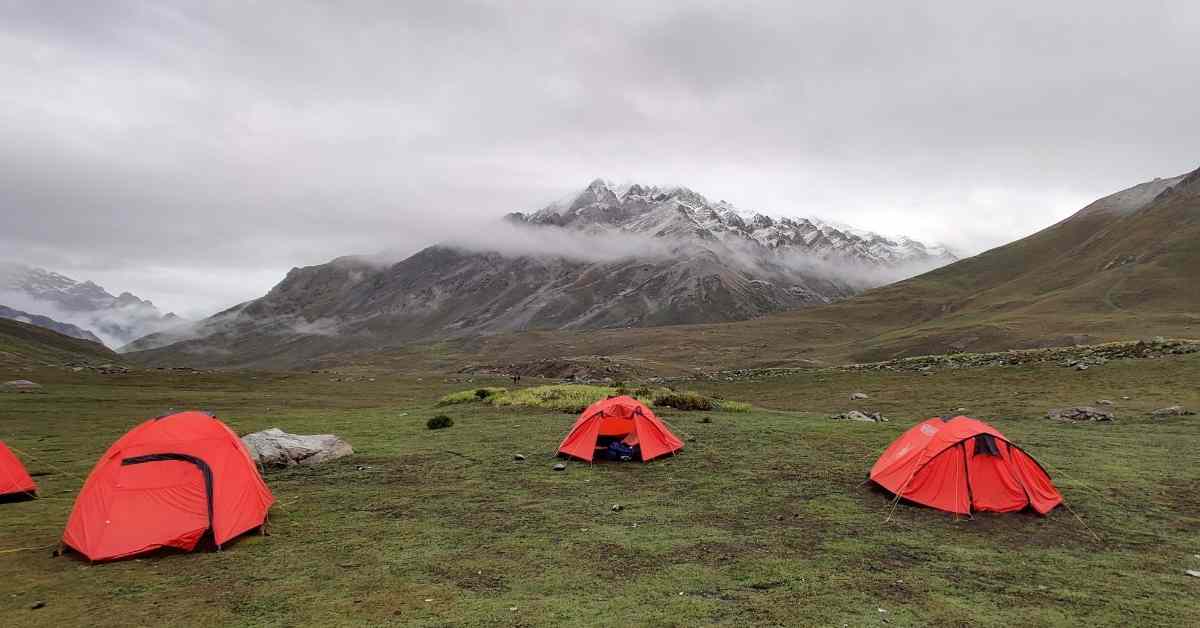
With over 10 high-altitude lakes, 3 mountain passes and breathtaking views to last a lifetime, The Kashmir Great Lakes Trek is hands down one of the most beautiful treks in India. Located in the heart of Kashmir, the trek takes you through some of the finest vistas that Kashmir has to offer. The trek with a duration of 7 days is recommended for everyone, beginners and amateurs. The trek begins from the town of Shitkari which is located near Sonmarg and ends at Naranag, a town famous for the Naga Temple built in the 8th Century.
What to expect?
The Kashmir Great Lakes Trek is a long trek and involves 6 days of trekking. Over the days, you’ll cross 3 high altitude passes namely the Nichnai, Gadsar and Zaj. The climb up to the passes is the hardest parts of the trek. The climb up to the passes roughly constitutes 25-35% of the trek. Apart from the climbs, most of the terrain is mostly flat with long gradual descents.
You’ll be crossing majestic birch, pine and deodar forests as you journey to above the tree line on day one and back down on day seven. For most of the trek, you’ll be crossing meadows larger than any stretch of the imagination. You will also be surrounded by majestic snow-covered mountains. Their Glaciers melt and feed the lakes that you find on the trek. On day 3, you’ll cross the Gadsar Lakes, the largest lakes on the trail.
On average, you can expect to walk for around 7-8 hours a day. We encourage people to walk slowly and at their own pace so that they can acclimatize properly.
Where will I be staying?
As you land in Srinagar, you’ll be driven to Sonmarg where you’ll be staying in a comfortable homestay or guest house Shitkari with the locals. While on the trek you’ll be staying in comfortable alpine dome-shaped tents. We at Adventure-Pulse provide a 3-man tent for two people. If you wish to stay in a Single tent, we can arrange that at an added cost. This gives you ample space to keep your bags and move around in the tent. The first time you stay in a tent you might find it a little uncomfortable, but it’ll get better and once the trek ends, you’ll miss the tent.
The bottom of the tents is lined with a thin piece of foam. This is to insulate you from the ground. The thin piece of foam is followed by a thicker sleeping mat. As the name suggests, this is the mat on which you’ll be laying. On top of the sleeping mat is where your sleeping bag will be placed. The numerous mats with the thick sleeping bags that we provide will ensure that you get a good night’s rest and wake up charged and ready for the new day.
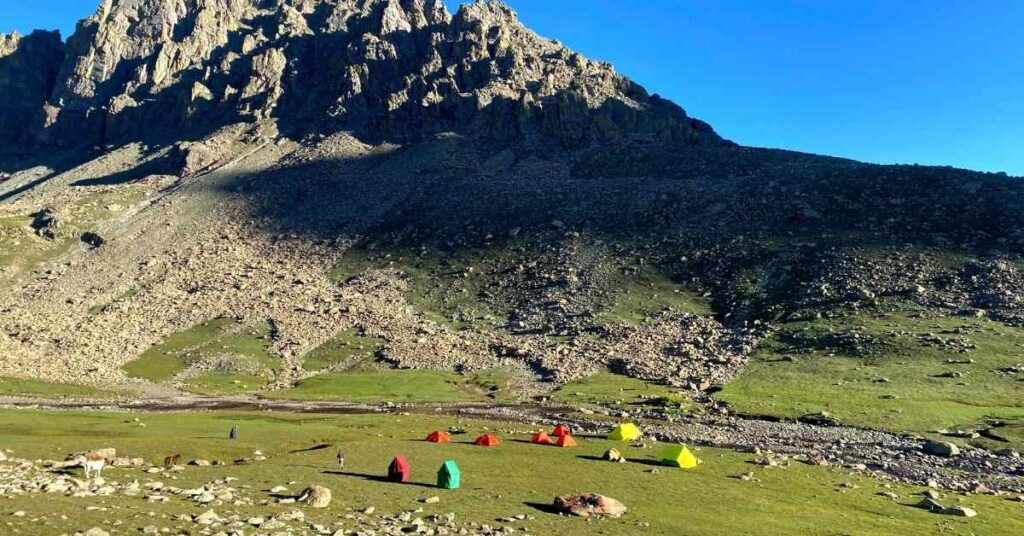
The last night of the trek will be spent in a comfortable 3-Star in Srinagar. We can provide you with an upgraded room that will be charged on actuals.
How would the weather be like?
From July to September, the best time to visit the area, the weather is pleasant with bright summer skies in the day and pleasant nights. The average temperature can range from 10-15 degrees in the day to 0-5 degrees at night.
There is also a high chance of rain, so make sure you carry a poncho to protect you from the rain. When it rains in the mountains, expect it to pour.
Where will the meals be served?
While on the trail, meals and briefings will take place in a central dining tent. A dining tent is a larger tent that has enough room for everyone to sit in. We also provide camping stools and a dining table. On most camping style treks such as Goechala and Chadar Trek, the dining tent acts as a central ‘hangout area’ and is the most happening place on the campsite.
Where will we go to the loo?
As part of our services, we provide a toilet tent with a flushable loo. After the porters reach the next campsite, they will set up the loos on one end of the campsite, away from running water. The toilet tents will then be pitched, and the portable flushable commode will be placed. At the start of the trek, your trek leader will explain how the loo works. Each Toilet Tent will also come equipped with sanitizing sprays, toilet paper and a packet for the waste. While on the trail, you will have to go Au Natural behind a rock.
What will I be carrying while on the trek?
For a list of items to carry on the trek, I would recommend going through this list.
While trekking, your personal bags with most of your items will be loaded on mules in the morning. You will be able to access this bag only once we reach the next campsite. Most of the clothes and stuff that you don’t need while trekking should be packed into this main bag. A good duffel bag (80-100 litres) or a rucksack (50-70 litres) can be used as your ‘main’ bag. If you have some clothes or miscellaneous items that you do not wish to take on the trek, they can be left at the hotel and we’ll ensure you get them at the end of the trek.
On your back, you’ll have to carry a small daypack (15-20 litres) with a light jacket, windcheater/raincoat, water and your packed lunch. This will act as your ‘secondary’ bag. You will need to carry your daypack and we would recommend keeping it as light as possible.
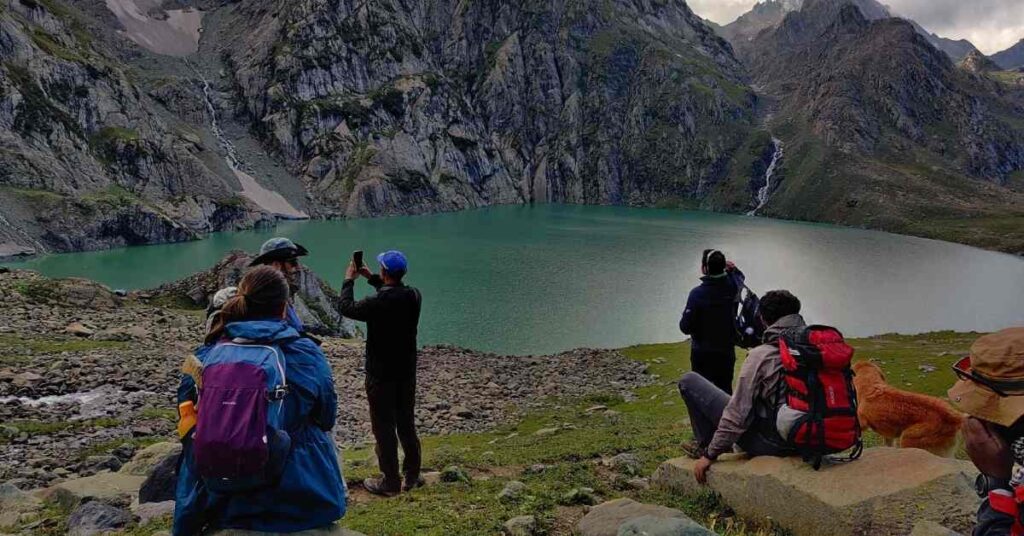
What kind of food will be provided on the trek?
On the trek, our staff will be carrying a kitchen tent with all the ration. They will accompany you for the entire duration of the trek.
As you wake up in the morning, you will be provided with hot coffee or tea with some biscuits. It is important to stay hydrated in the mountains and the best way to consume liquids is in the form of hot beverages. Tea and Coffee will also be available for breakfast and in the evening’s.
For Breakfast, you can expect parathas, bread and jam, poha, oats and noodles. We will try our best to provide an assortment of food and avoid repetition. Lunch will be provided in the form of packed meals. At the start of the day, your trek leader will prepare your tiffin box with the meal prepared, juices, biscuits, chocolates and toffees. Sugar provides some much-needed energy while you are trekking.
The Dinner Menu will include items such as fried rice, hakka noodles, biryani, Dal-Roti-Sabji-Rice among others. We will also provide soup and dessert before each supper.
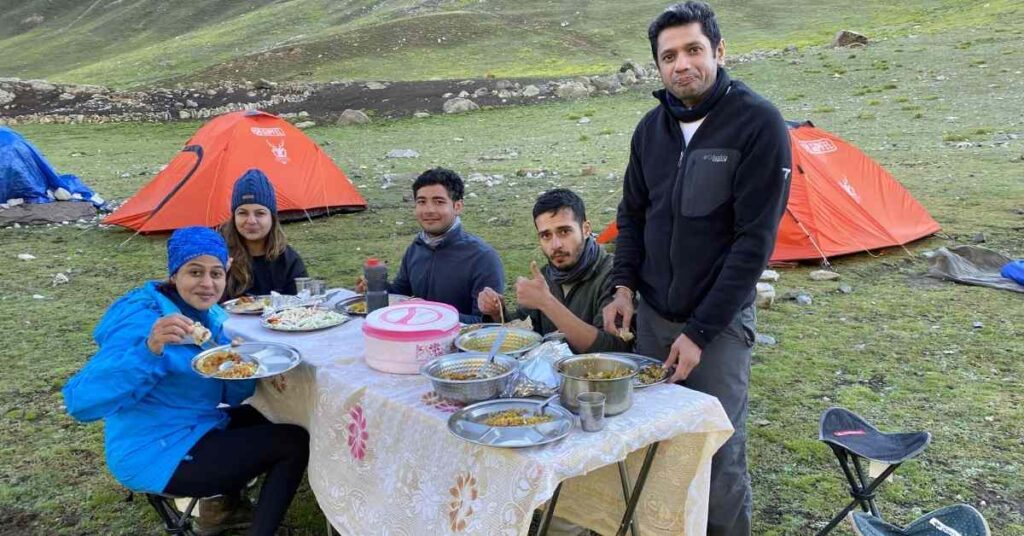
What is the strength of the support staff on the Kashmir Great Lakes Trek?
Each group will have a lead guide and numerous assistant guides (depending on the strength of the group). The guide’s responsibility is to keep you safe. They will make sure that the group is following the right route and at the right pace. They will also be your Single Point of Contact with the staff. The guide will be from the area and will also have access to the necessary paperwork. In the case of an emergency, they will also organize the necessary evacuations. The assistant guide will assist the guide and will either walk behind the group and/or in the centre. They will make sure that no person will be trekking alone and that the group does not spread out too thin. If you wish, we can also hire a dedicated assistant guide who will walk with you the entire time. They will make sure that you follow the right pace and will be able to check on you on a more personal basis.
Along with the guides, you will also be accompanied by a Cook, who will cook all the meals. If it’s a large group, there will also be a kitchen helper.
To round off the staff are the mule handlers. It is their job to load your main bags on to the mules or ponies and get them to the destination.
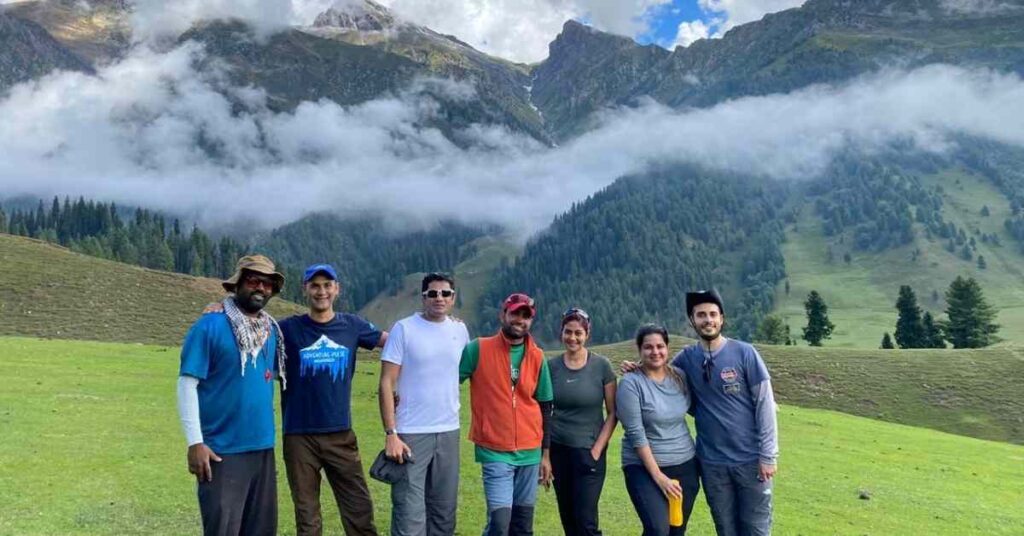
How do I get to Srinagar?
The easiest way to get to Srinagar is to fly. There are daily flights from Delhi and Jammu. We would recommend getting into Srinagar in the morning so that you have the day to roam around the beautiful city. Srinagar is the start point of the Kashmir Great Lakes Trek.
How do Prepare for the trek?
Like most treks, for the Kashmir Great Lakes Trek certain level of fitness is required. For a sample fitness plan, you can refer to our plan here. If you are a fit individual, dedicated training for 15-30 days should be more than enough. The Kashmir Great Lakes Trek is a long trek, but beginners can easily join us. You can contact us at [email protected] and we’ll be happy to help you draft a fitness plan for your needs. A large portion of trekking is the mental fortitude and your ability to push yourself regardless of your physical fitness.
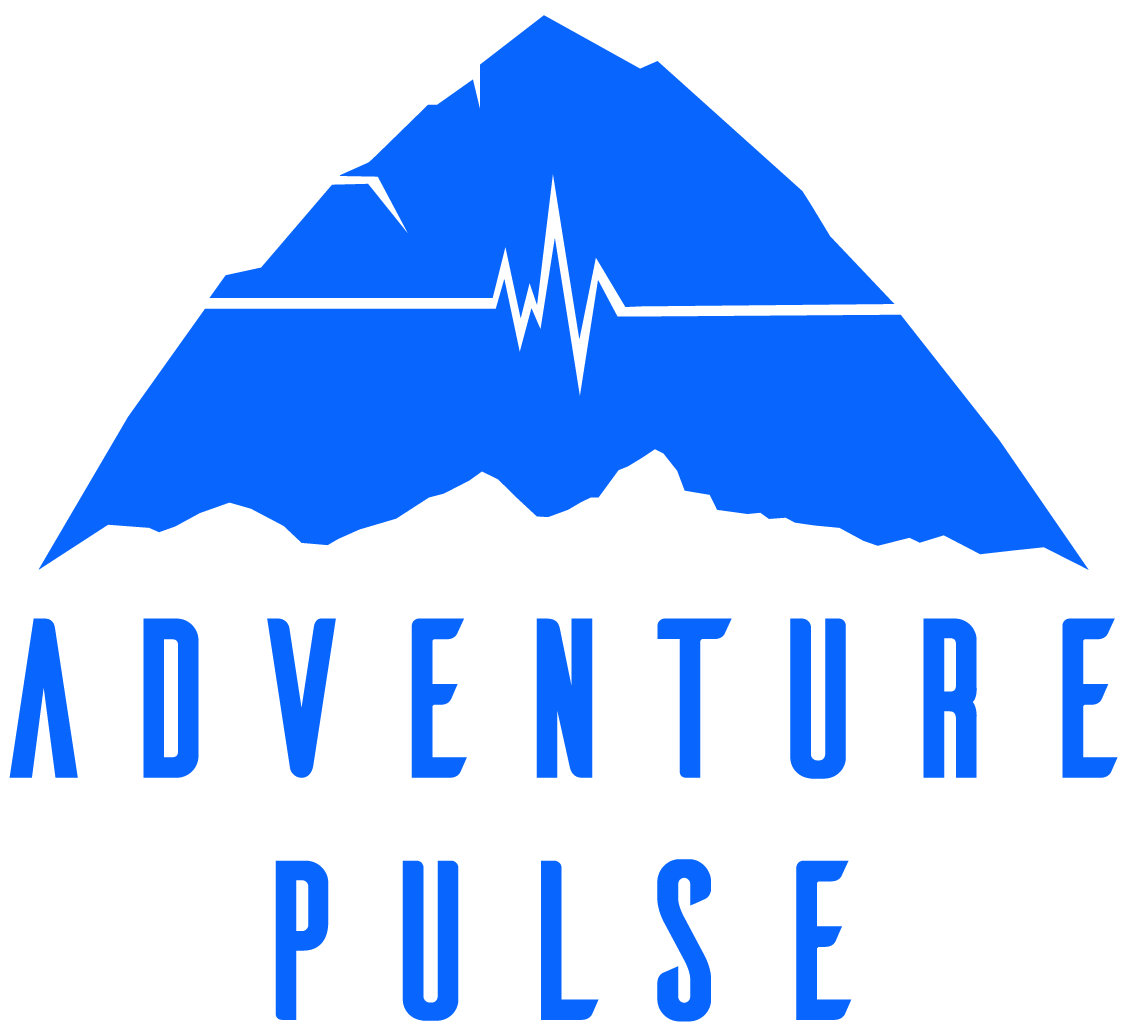
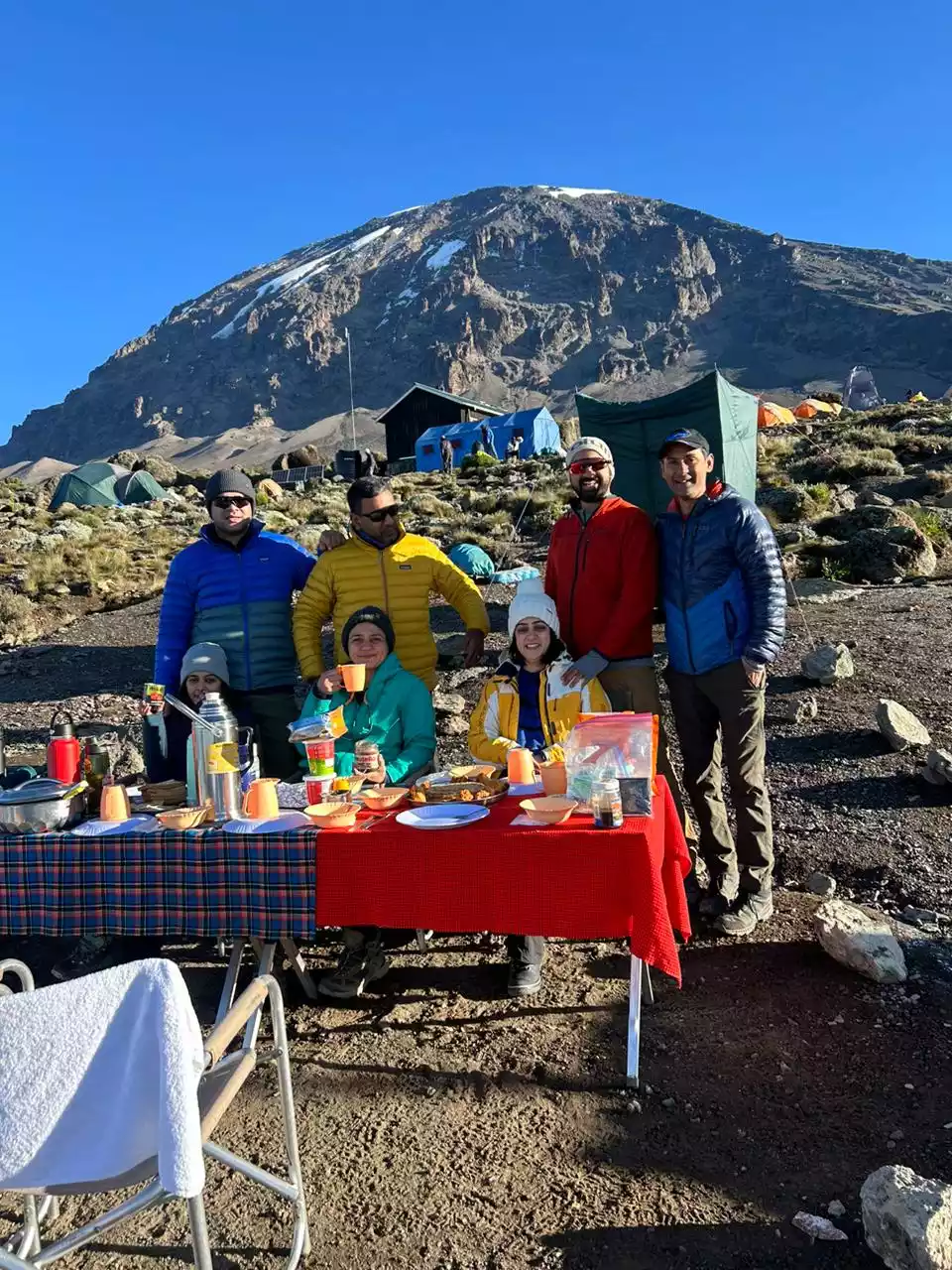
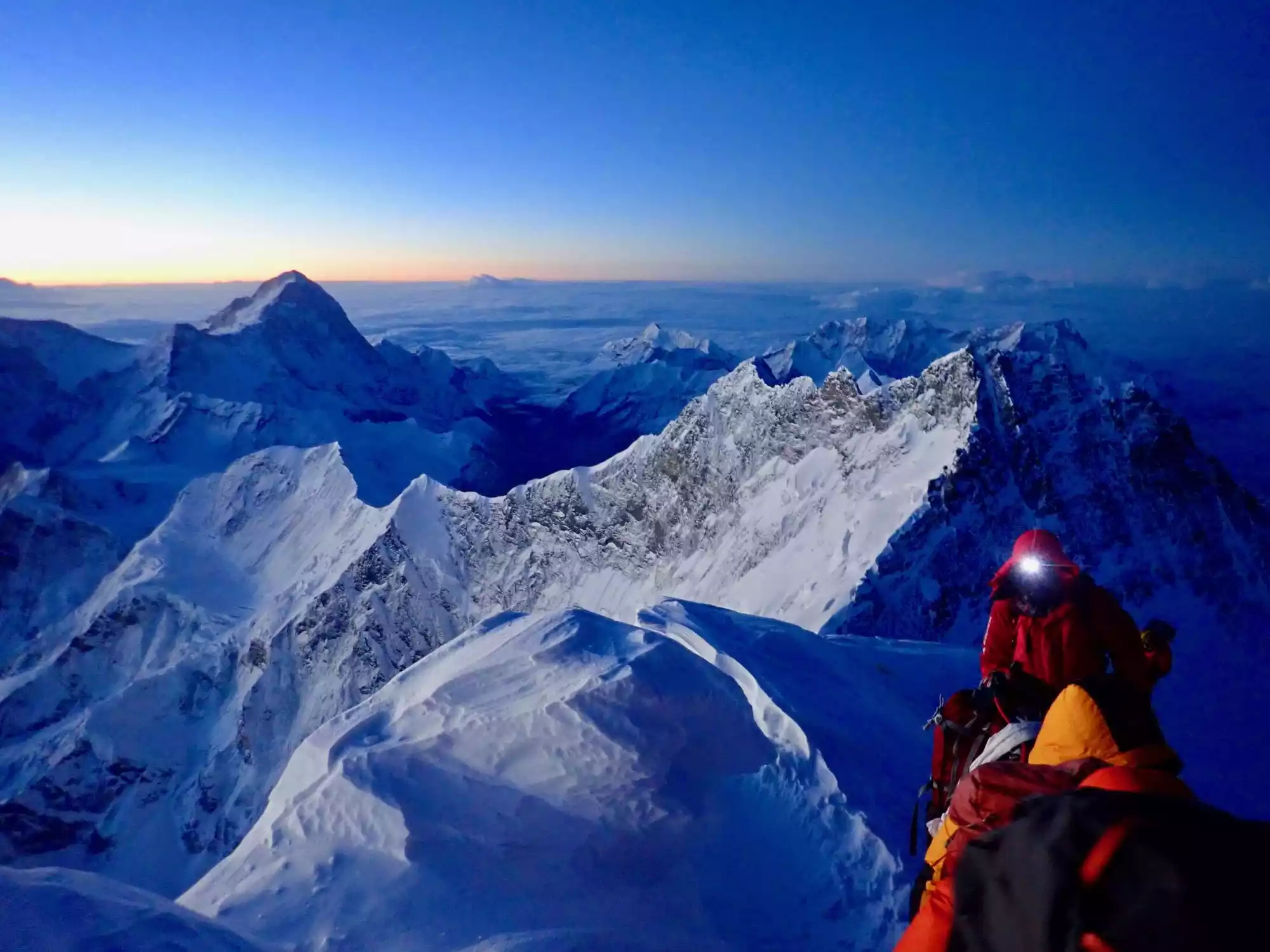
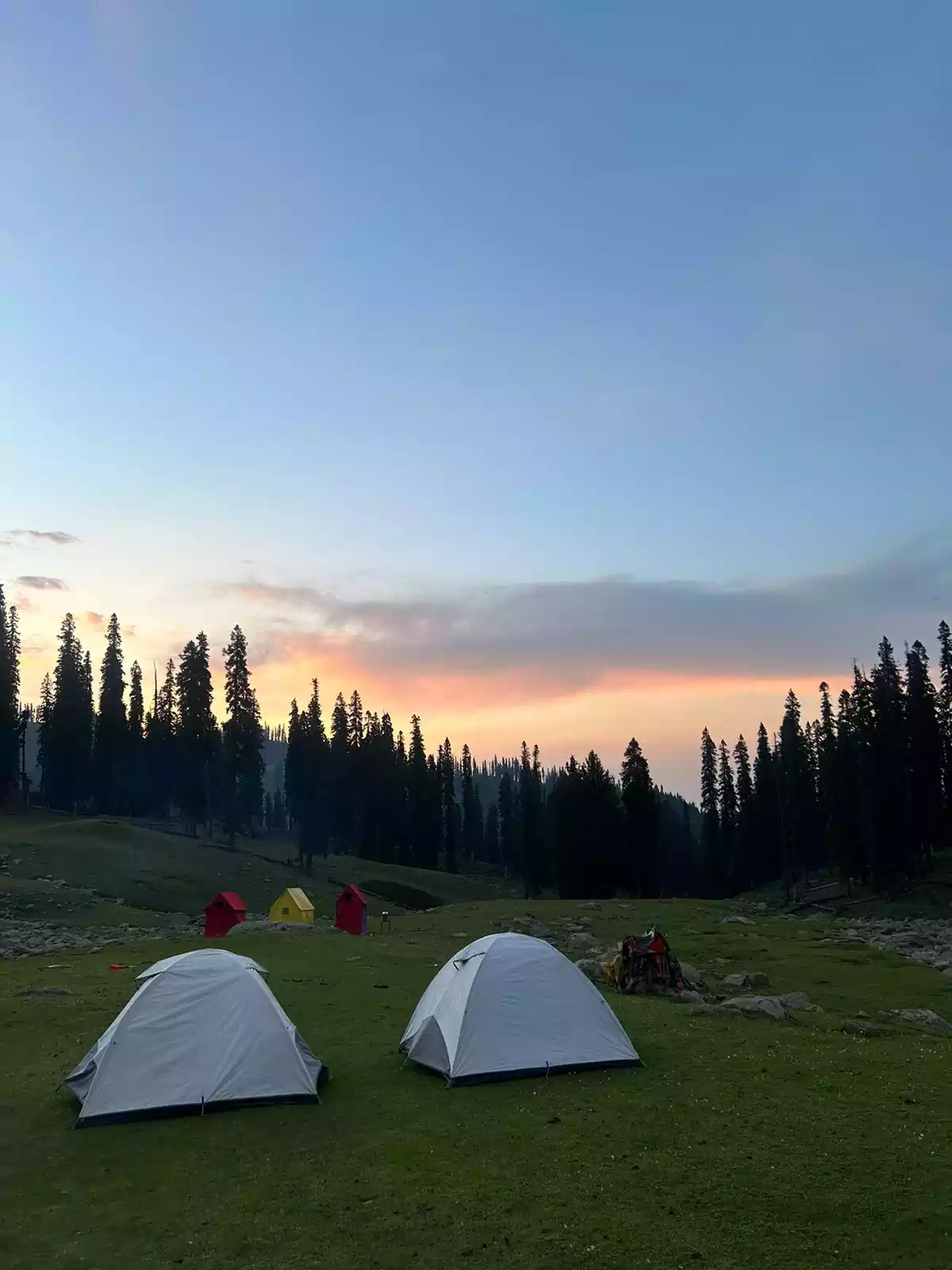
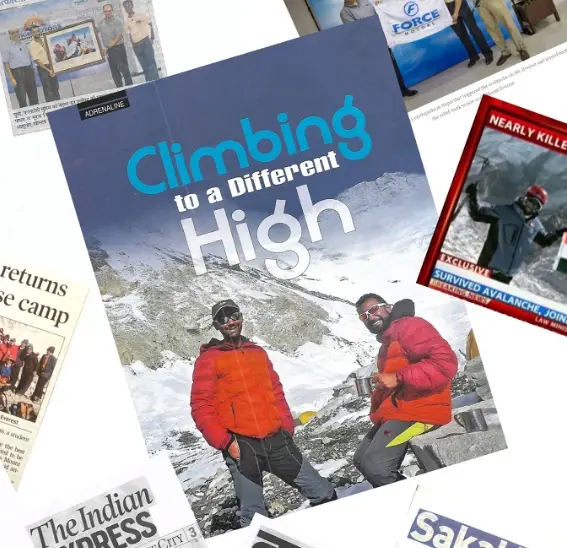
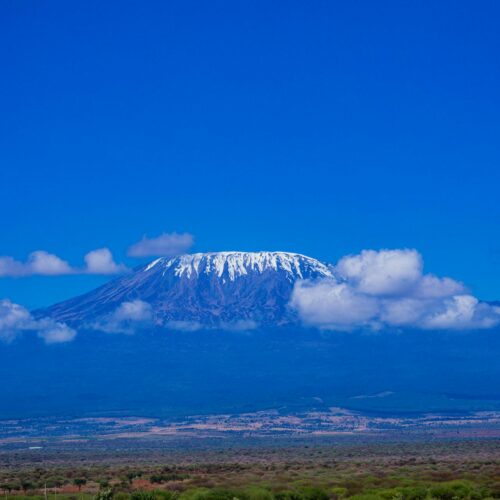
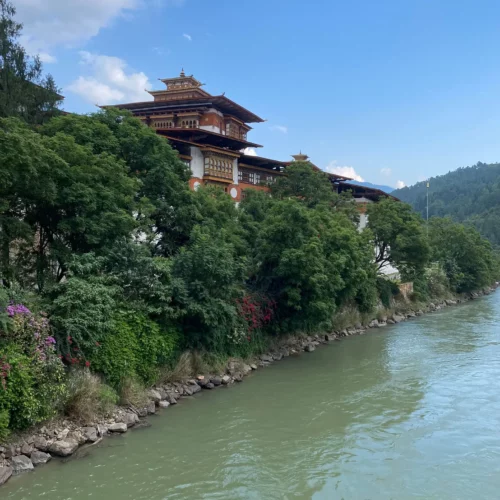
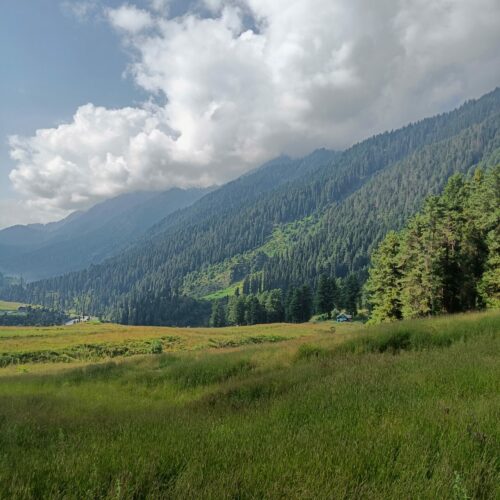
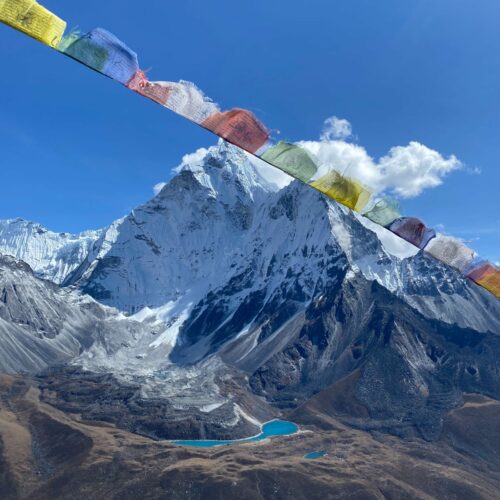
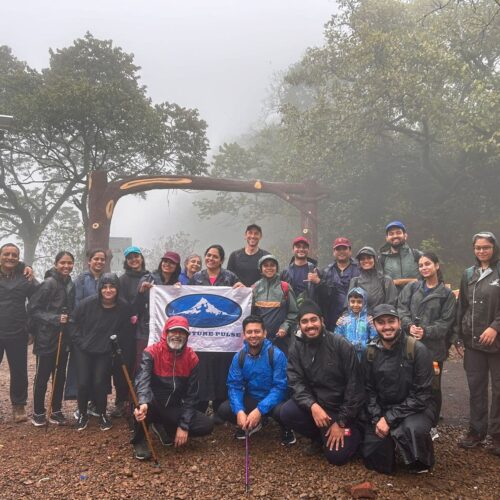
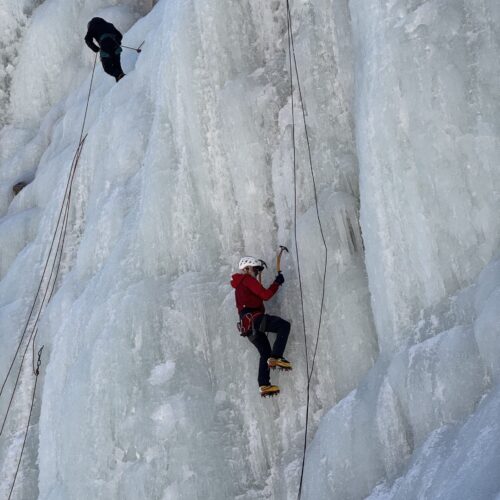
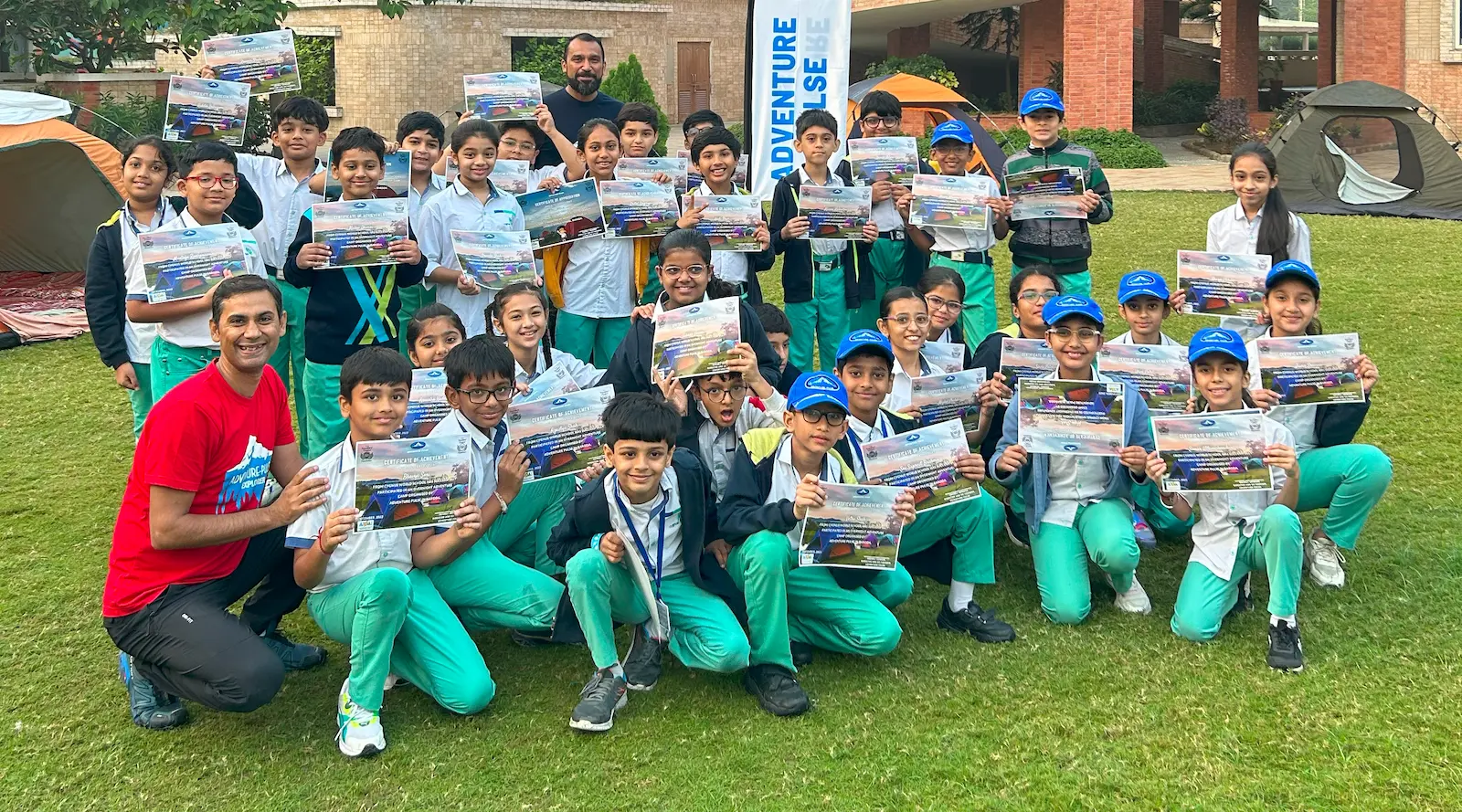
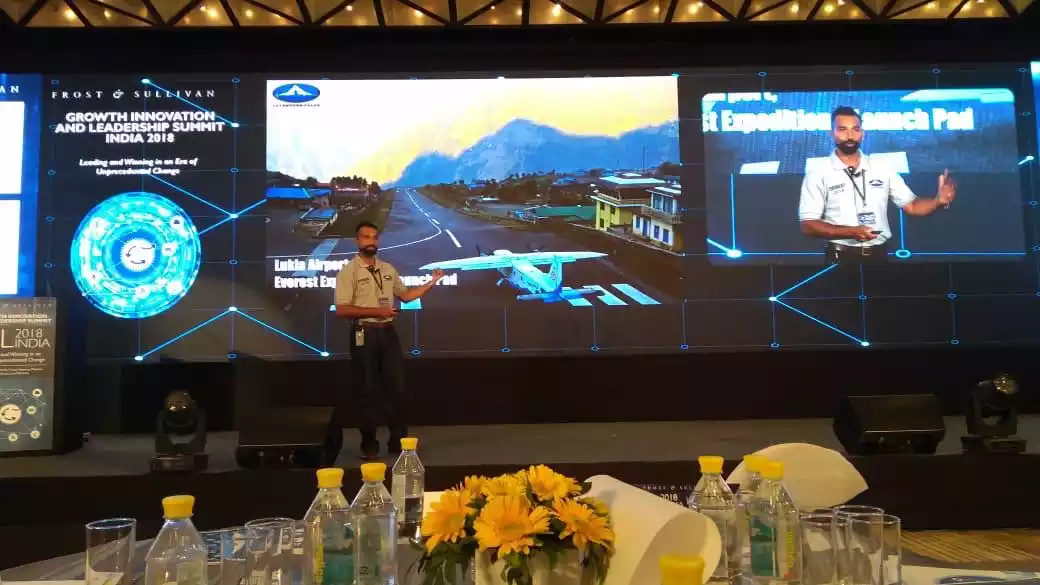
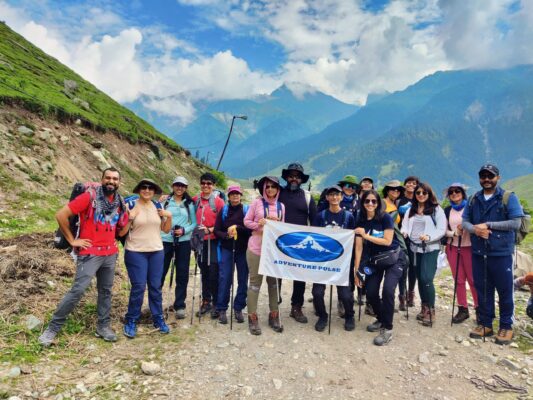
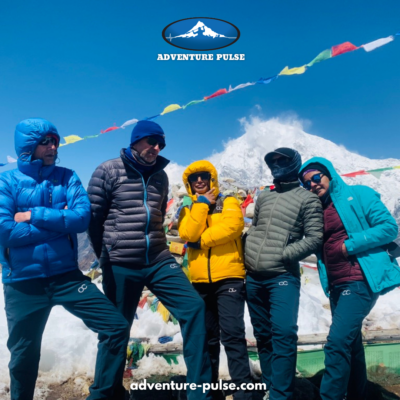
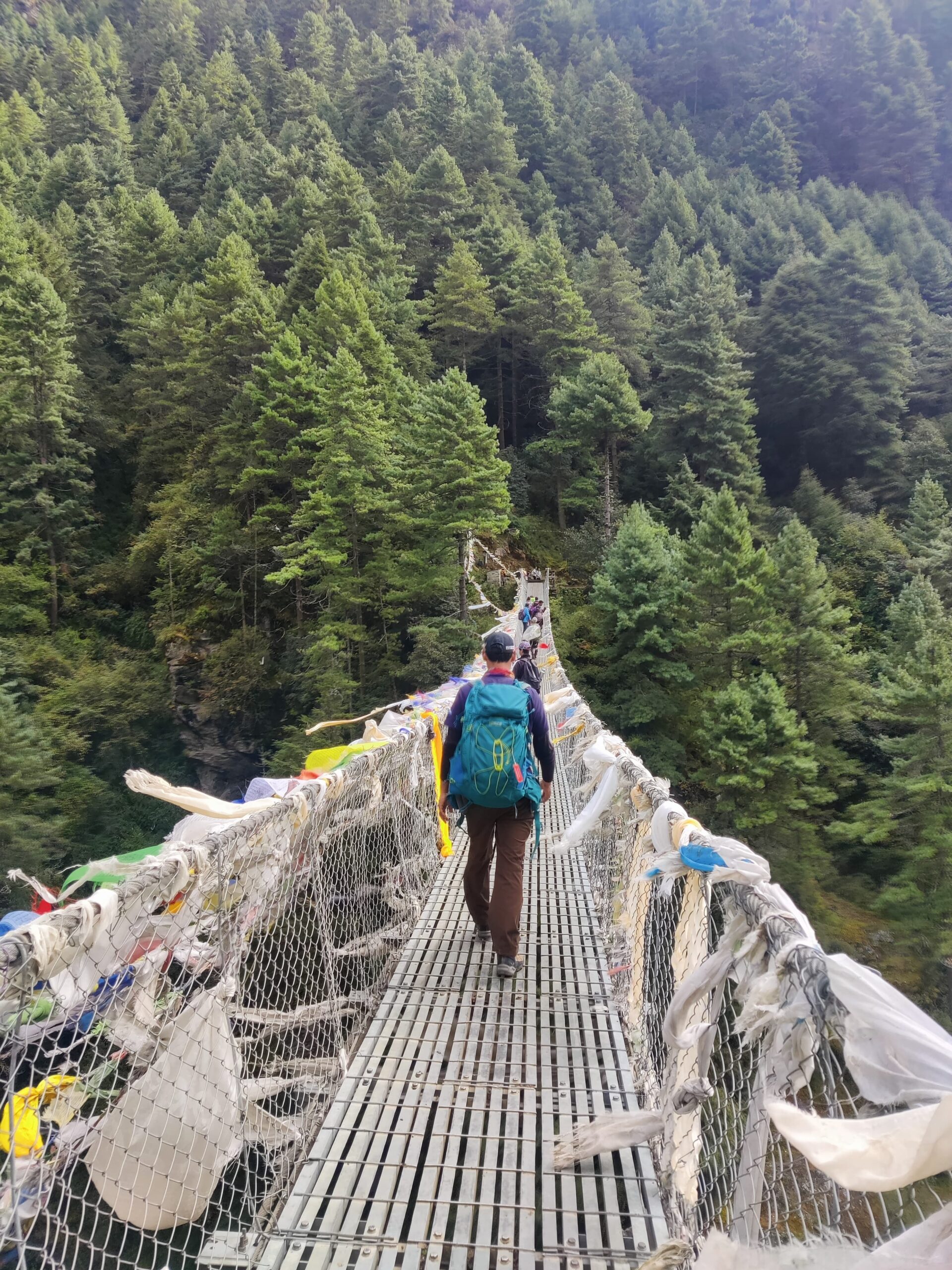
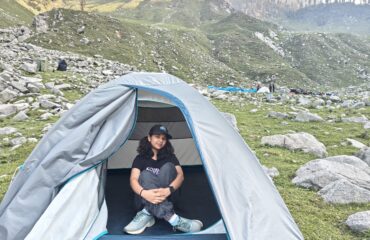
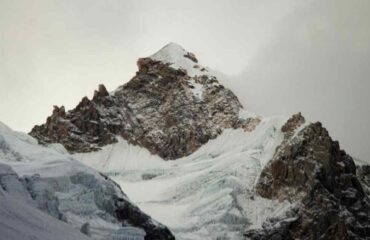
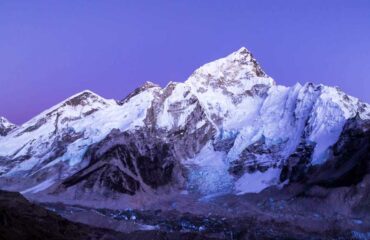
[…] Everything you need to know about The Kashmir Great Lakes Trek […]
Very good and nicely penned what seems an amazing experience. What time of year was this particular trek done ?
[…] All you need to know about the Kashmir Great Lakes Trek […]
[…] an active lifestyle the mountains were left behind. Exactly a year ago a friend of mine mentioned The Kashmir Great Lakes and in a moment of weakness, I said HELL YA – let’s do it. Little did I know that this […]